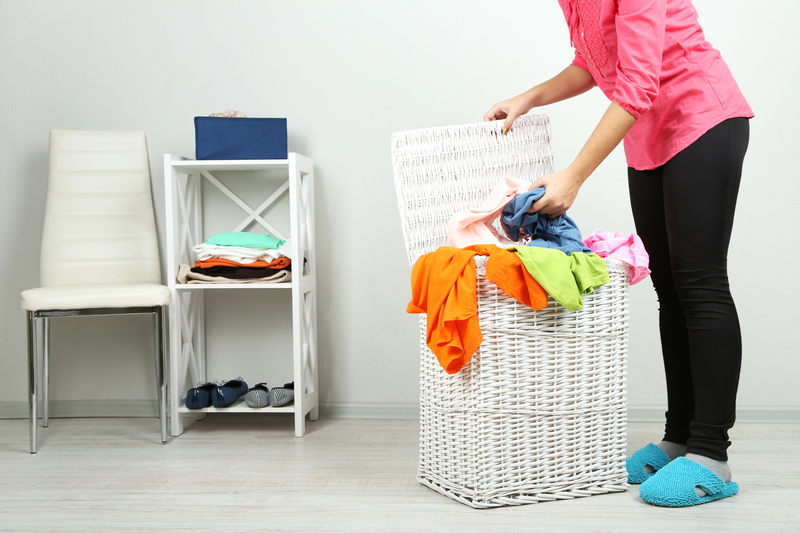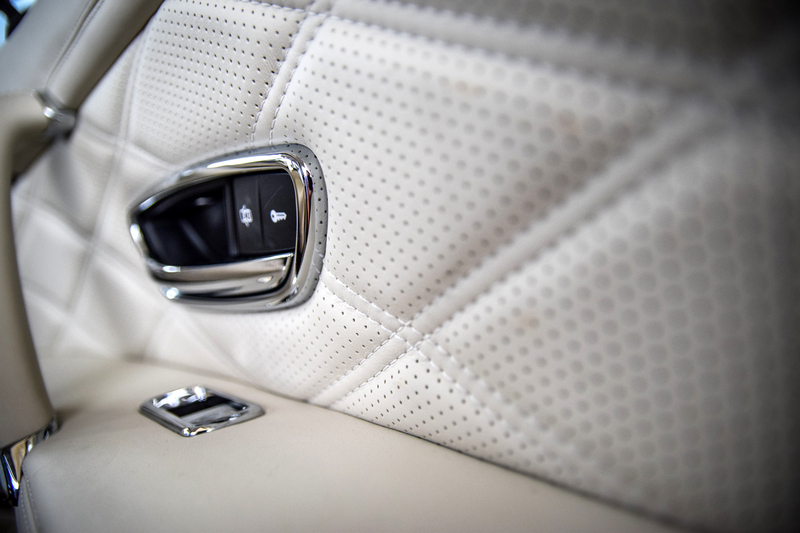Preserve the Beauty: Jewelry Cleaning Tips
Posted on 25/08/2025
Preserve the Beauty: Jewelry Cleaning Tips
Jewelry is more than mere ornamentation; it's a statement of elegance, style, and often sentimental value. Over time, though, even the most exquisite pieces can lose their brilliance due to dirt, oil, and general wear. If you wish to keep your rings, bracelets, necklaces, and earrings sparkling, following the right jewelry cleaning techniques is crucial. In this comprehensive guide, we'll reveal the best tips and methods to keep your cherished accessories looking as brilliant as the day you got them, ensuring you can preserve the beauty of your jewelry for generations to come.
Why Is Jewelry Cleaning Important?
Everyday activities expose your jewels to substances that dull their shine.
- Natural body oils and sweat can cause grime to build up.
- Lotions, soaps, and perfumes leave residue that affects brilliance.
- Environmental dust and pollutants coat surfaces, making gemstones appear cloudy.
Regular jewelry cleaning is key to maintaining both the aesthetic and value of your treasures. Without proper care, not only does your jewelry lose its luster, but damage to the metal and stones can also occur in the long term.

Understanding the Different Types of Jewelry
To effectively clean and preserve your pieces, it's essential to recognize the type of jewelry you own. Each material requires a specific approach:
- Gold - Resistant to tarnish but susceptible to scratches.
- Silver - Prone to tarnishing and requires gentle handling.
- Platinum - Durable but can attract grime.
- Gemstone jewelry - Each stone (diamonds, rubies, emeralds, etc.) might have unique cleaning needs.
- Costume and fashion jewelry - Often made of less durable materials that necessitate extra care.
Identifying the type of jewelry will help you choose the right cleaning techniques and products, ensuring the beauty of your collection is never compromised.
General Jewelry Cleaning Tips
Before diving into the specifics, here are some universal jewelry cleaning suggestions everyone should follow:
- Always check for loose stones or clasps before cleaning. Repair these issues first to avoid losing pieces during the process.
- Use lukewarm waterhot or cold for soaking. Extreme temperatures can crack stones or warp metals.
- Handle with care--never use abrasive tools like metal brushes or hard sponges.
- Dry completely to prevent water stains or corrosion, especially on silver.
For heirlooms or severely tarnished pieces, consult a professional jeweler for safe and expert cleaning.
Homemade Jewelry Cleaning Methods
Many jewelry cleaning techniques use household items. Here are popular DIY solutions to maintain your jewelry's beauty:
1. Gentle Soap and Water
- Fill a bowl with warm water and add a few drops of mild dish soap.
- Let jewelry soak for 10-15 minutes.
- Use a soft toothbrush to gently scrub any crevices (especially effective for rings).
- Rinse thoroughly with clean water.
- Pat dry with a soft lint-free cloth.
This method works well for gold, platinum, diamonds, and many hard stones.
2. Baking Soda Paste for Tarnished Silver
- Mix two parts baking soda with one part water to form a paste.
- Gently apply the paste to the tarnished area using a soft cloth.
- Rub softly, focusing on tarnished sections.
- Rinse and buff dry.
Tip: Never use this method on soft stones like pearls or opals, as it may damage their surfaces.
3. White Vinegar Soak
This is ideal for pure silver accessories:
- Combine half a cup of white vinegar with two tablespoons of baking soda in a bowl.
- Soak jewelry for two to three hours.
- Rinse and dry thoroughly.
Store-Bought Jewelry Cleaning Solutions
If you're unsure about home remedies, numerous commercial jewelry cleaners offer reliable results. When using store-bought products, always:
- Follow directions carefully (some are not suitable for all stones or metals).
- Avoid ammonia-based cleaners on pearls, emeralds, or porous stones as they can cause irreversible damage.
- Use an ultrasonic cleaner with care--these can loosen settings on fragile or older pieces.
When in doubt, consult with a trusted jewelry professional before using unfamiliar cleaning products.
Specialized Jewelry Cleaning Tips by Material
How to Clean Gold Jewelry
- Soak in mild soapy water for 20-30 minutes.
- Use a soft toothbrush to clean tight spots like chain links.
- Polish gently with a clean, soft cloth.
- Avoid chlorine or bleach, which can permanently discolor gold.
Note: For intricate designs, canned air can be used to blow out lodged dust or debris.
Silver Jewelry Maintenance
- Polish regularly using a special silver polish cloth (not paper towels, which can scratch).
- Store silver jewelry in anti-tarnish pouches or lined boxes.
- Avoid leaving silver exposed to air and light for extended periods.
Diamond and Gemstone Jewelry Cleaning
- Diamonds can handle mild soapy water cleaning, but always check the setting first.
- Oils from fingers can dull the appearance--wipe regularly with a soft, dry cloth.
- Soft stones (opals, turquoise, pearls) should NEVER be soaked as they absorb moisture and may be damaged. Wipe clean with a damp cloth instead.
Ultrasonic cleaners are safe for diamonds but never for pearls, emeralds, or opals.
Caring for Costume Jewelry
- Wipe after each use with a dry or slightly damp cloth to remove sweat and oils.
- Store separately to prevent scratching and wear.
- Never soak, as adhesives may weaken and stones could fall out.
Protect Jewelry's Beauty with Proper Storage
Preserving the shine of your accessories goes beyond jewelry cleaning.
- Store each piece separately in soft pouches or lined compartments to avoid scratches and tangling.
- Keep jewelry away from direct sunlight or excessive heat to prevent color fading, especially for precious stones.
- Use anti-tarnish strips or silica gel packs in storage containers to absorb moisture and reduce tarnishing.
- Remove jewelry before swimming, showering, or house cleaning to avoid exposure to harsh chemicals and moisture.
By adopting these precautions, you extend the longevity and brilliance of your treasured items.
What To Avoid When Cleaning Your Jewelry
- Avoid toothpaste, baking soda on soft stones, or abrasive chemicals--these can scratch metals and gems.
- Don't use ultrasonic cleaners for glued jewelry or delicate gems.
- Avoid boiling water, especially with opals and pearls, as it can cause cracking or discoloration.
- Never wear jewelry while doing heavy lifting or exercising (sweat and impact can damage settings and stones).
Professional Jewelry Cleaning Services
For pieces with complex settings, antique value, or severe tarnish, professional cleaning is recommended. Jewelers use advanced techniques--such as ultrasonic baths, steam cleaning, and expert polishing--that restore original shine while protecting delicate settings.
- It's wise to have your fine jewelry professionally cleaned and inspected at least once a year.
- Certified jewelers can spot wear-and-tear issues and prevent the loss of stones or clasps.
Essential Tips for Daily Jewelry Care
- Put on jewelry last, after makeup and perfume.
- Remove rings before hand washing or applying lotions.
- Wipe pieces after wear to remove sweat, oil, and dirt.
- Regular gentle cleaning avoids heavy build-up and extends intervals between deep cleanings.
- Use microfiber or jewelry-specific cloths for daily polishing.

Frequently Asked Questions About Jewelry Cleaning
1. How often should I clean my jewelry?
Regular everyday pieces: Wipe with a soft cloth after each use and deep clean monthly. Special occasion jewels: Clean before and after use, then store properly.
2. Can I use vinegar on any jewelry?
White vinegar works for pure silver, but should never be used on pearls, gemstones, or fashion jewelry, as it can corrode surfaces and adhesives.
3. Is it safe to clean diamond rings at home?
Yes, provided you use mild soap and water, a soft toothbrush, and check for loose prongs or stones.
4. When should I take my jewelry to a professional?
For vintage, high-value, or intricate pieces, or if you're unsure about cleaning methods for certain stones or metals, professional cleaning is the safest choice.
Conclusion: Keep Your Jewelry Timeless
Preserving the beauty of your jewelry doesn't have to be a daunting or time-consuming task. With regular cleaning, mindful handling, and proper storage, your favorite rings, necklaces, bracelets, and earrings can remain stunning for a lifetime. Whether you cherish a diamond ring, a silver bracelet, or a vintage brooch, every piece deserves care and diligence. Implement these jewelry cleaning tips and enjoy the radiant sparkle of your collection--today and for years to come.
- Embrace a cleaning routine tailored to each type of jewelry.
- Store carefully to maximize longevity and minimize damage.
- Consult professionals for high-value or delicate items.
By following these expert tips, you'll ensure your jewelry stays beautiful, valuable, and as meaningful as the memories it holds.





